Beyond the Glowing Cave: Some Thoughts on Lost

Note: This article contains spoilers. Proceed at your own risk.
What a long, strange, frustrating, thrilling, heartbreaking, confusing trip it’s been. My wife and I were late to Lost. It wasn’t until after reading a glowing review of the first season that I decided to get the first disc from Netflix, and we were immediately hooked. If I recall correctly, we watched the entire disc — all four episodes — in one sitting, immediately realized that Netflix simply wasn’t the way to go, and bought the DVD set the next day (and we made short work of it as well).
As we didn’t have cable TV, we were always one season behind. We’d avoid spoilers for the current season as best we could, buy the DVDs as soon as they came out, and watch the entire season over the course of a weekend or so. Suffice to say, Lost never really lost its hold on us. Even during those trying middle seasons, where the series lost its momentum and got bogged down with Nikki and Paulo, the Others, constantly shifting alliances and loyalties, time travel, and an increasingly convoluted mythology, we were as enthralled and fascinated as we were befuddled. And it all led us, via however meandering a path, to 5am on the Monday after the series finale aired, where we sat on the couch in our pajamas to watch “The End” on Hulu.
When asked for my reaction to the end of Lost, I initially said I found the finale emotionally satisfying, but pretty lacking in every other way. However, that assessment has changed considerably as I’ve reflected more on the series’ finale, and not in its favor.
Of “Flash Sideways” & Mythological Neglect
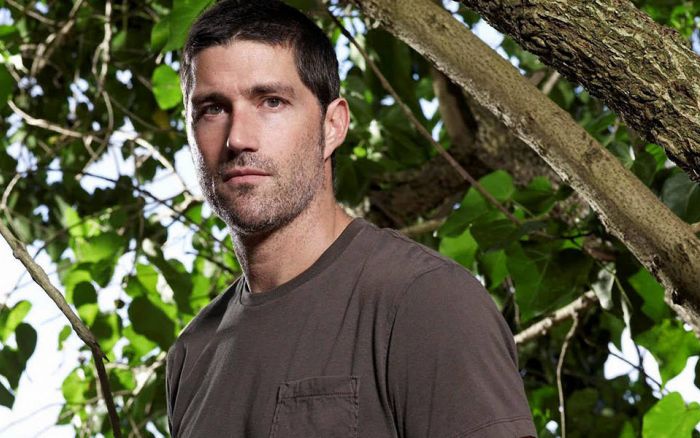
One of the things that I’ve always liked about Lost — indeed, the thing that I probably liked most about it — was that it was a sci-fi/fantasy show that didn’t feel like a sci-fi/fantasy show. Sure, it had the usual genre conventions — monsters, strange medical and scientific experiments, secret bases, time travel, mysterious-yet-powerful artifacts — but it was a genre show that even non-geeks could watch and get into. And the reason is that the show forwent any real geekery or technobabble, and focused on the characters and their plight as survivors forced to stick together, despite innumerable skeletons and agendas, in order to survive. (Of course, the show threw out plenty for the geeks to latch onto, as well.)
It made for compelling drama and memorable characters, individuals whose stories were deeply moving and affecting as they all sought redemption, grace, and purpose. And to Lost’s credit, it did an admirable job of maintaining our interest and personal stake in the characters, especially as the show’s mythology grew more convoluted with each passing season. And as we neared the series finale, the question became, would Lost do right by its characters? And sadly, the answer is ultimately “No”.
The finale was certainly full of character moments, as the sixth season’s “flash sideways” — which depicted a reality/universe/dimension in which the characters never crashed on the Island — came to their culmination. I would be lying if I said I wasn’t moved; if I recall correctly, I got choked up on at least three different occasions, and I still find myself with some warm fuzzies as I reflect back on the finale’s ending. But warm fuzzies, nice as they may be, do not a good, rewarding, and fulfilling finale make.
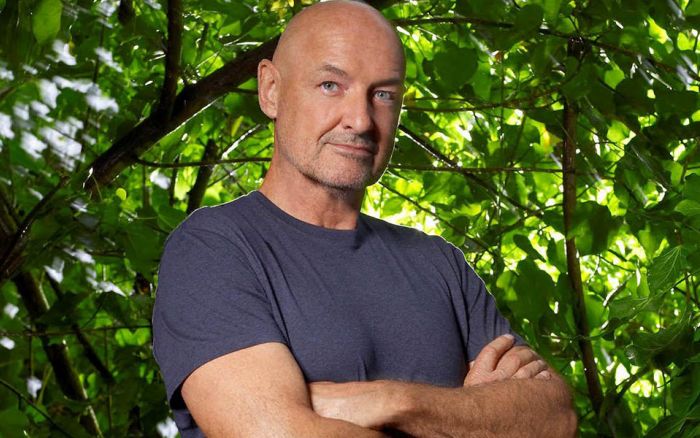
As it turns out, the “flash sideways” did not depict a parallel reality, but rather, a timeless Limbo-esque “waiting room” created by the souls of the main characters after they died so that they could all be reunited before moving on to the hereafter. Which, on the surface, seems like a rather typical and reasonable thing for Lost to do, given all of the other crazy stuff that’s occurred in the last six years. But the more I’ve thought about it, the more it all begins to break down.
When all was said and done, the “flash sideways” were little more than a cheap ploy by the writers to give the audience an easy resolution to the characters’ storylines. Or, as Myles McNutt — who, by the way, was a fan of the finale — puts it:
What is the Flash Sideways but a shortcut, a way to be able to bring the entire cast together at the end of the series to provide emotional payoffs regardless of whether the characters were alive or dead? The Sideways storyline has always felt like a chance for the show to revisit things that we were missing in the current storyline: it gave us a chance to see a version of Claire who hasn’t morphed into Rousseau, or a version of John Locke who remains John Locke. It gave us, as an audience, moments that could serve as a fitting goodbye for characters we knew had already had their goodbyes earlier in the series.
Which is all fine and dandy, as far as giving the audience those aforementioned warm fuzzies, but here’s the rub: the “flash sideways” don’t mean anything in the larger context of the series. Lost has always employed a dual narrative structure within its episodes. Each episode has an “A” plotline, which usually takes place on the Island, and a “B” plotline, which was typically a flashback or flashfoward. The two plotlines were connected, informing and paralleling each other and providing viewers with deeper insights into a particular character and their past, their relationships, what brought them to the Island, etc. It got a little clichéd at times, but it was a pretty effective structure nevertheless.
As the “flash sideways” emerged in season six, people came up with numerous explanations, with the most common one that I heard being that the “flash sideways” took place in a parallel universe created by the atomic bomb set off at the end of season five. The characters in this parallel universe were still linked to themselves in the real universe (i.e., the Island), and that the reunion of the two universes was necessary to defeat the antagonist’s efforts to leave the Island. But, as it turns out, the “flash sideways” were “flash forwards” to a non-moment in which the characters are in a stateless existence that has what to do with the Island and everything that we’ve seen in the last six seasons exactly?
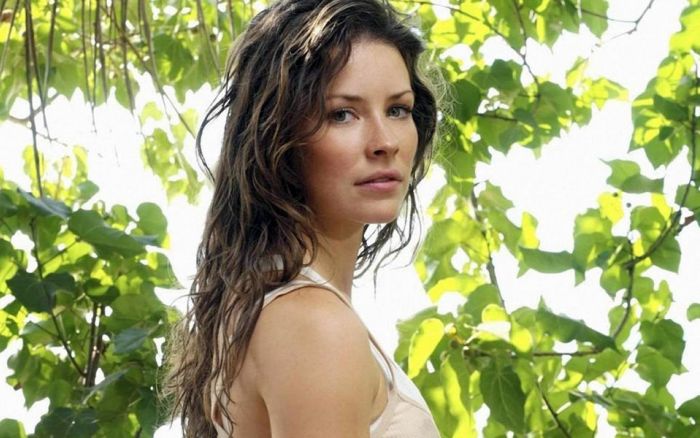
Which brings me to my second, and really, main point: the finale revealed a complete and utter disregard for Lost’s mythology. Now, let me be very clear here: I was not expecting or hoping every single one of Lost’s mysteries would be solved. I wasn’t even expecting most of the mysteries to be solved. But I was expecting and hoping that there’d be some sort of resolution to the show’s core mysteries, the ones that have been haunting viewers since the series pilot (e.g., the true nature of the Island, the numbers, the Dharma Initiative, why nobody ever has to shave, the freaking polar bears).
For six years, Lost built an increasingly labyrinthine mythology that included, among other things:
- A mysterious Island housing a powerful source of energy with bizarre powers over life and death;
- Hints of ancient civilizations (temples, hieroglyphics, and statues of deities);
- A secretive group of scientists attempting to prevent the end of humanity as predicted by an obscure mathematical equation and a set of numbers;
- An underground base with a computer and a button that needed to be pushed every 108 minutes to avert some catastrophe;
- An ideological duel between two seemingly immortal men — Jacob and the Man in Black — that revolved around human nature and free will.
Producers Damon Lindelof and Carlton Cuse stated quite clearly that they would not be answering or explaining every aspect of Lost’s mythology — which, as I mentioned early, was just fine by me. Rather, they would answer what they would answer, and move on to more important things. Or, as they explained in this Wired article:
…when you spend time with a 3-year-old, you quickly find out that one question just begets another — there’s a “why” in the wake of every “why” — and the only way to end the conversation is to say, “Oh look, a Chuck E. Cheese!” The show is doing its best to say, “Oh look, Chuck E. Cheese!”
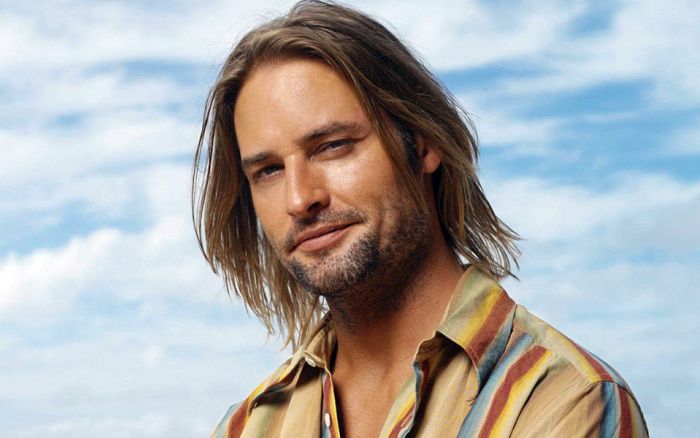
Such an approach may seem rather cynical on the face of it, but I don’t have a problem with that sort of redirection — provided that the thing I’m being redirected towards is at least as good, rewarding, and fulfilling as the answers that I initially sought. I’d have no problem if the show provided a different resolution than I wanted or expected with regards to the Island and its mysteries, provided that the resolution I did receive was satisfying. But for reasons that I’m having an increasingly harder time fathoming, the producers’ “resolution” was to act as if the last six seasons worth of world-building never happened.
Time and again, the producers said that the finale would focus on the characters and not the Island and its mysteries. However, the Island was just as much a character in the show as Jack, Locke, Kate, or Sawyer. The show spent just as much time constructing a history and personality for the Island as they did for any of the people running on its beaches and through its jungles. And to act as if none of that mattered — as if none of the physical world inhabited by and explored by the show’s human characters was, in the end, important — strikes me as just plain lazy and even cheating.
As Audrey M. Brown writes:
…let me tell you, one of the reasons I watched was specifically because of the mystery of the island. That was the main draw outside of the interesting characters, whether the writers will admit it or not, it was the mystery. And mysteries provide answers. Unless they turn into philosophical/“let’s play it safe so we don’t offend anyone” religious allegory. In that case, you can probably just forget about answers. Because the writers are likely just too darn smart to give them to you. I feel punished actually. I feel like someone played a trick on me. The inference, for me, was that all of these references meant something. The character names, the books they were reading, the religious symbolism, all of it was supposed to come together to MEAN something. Instead, it turns out it was just a bunch of referential mumbo jumbo that the writers included because they could. If they knew it wasn’t going to culminate in something, they should’ve said that in the very first season as they sat tight-lipped and giggling watching all of us try to “figure it out”. We were even told on numerous occasions, “It’s not purgatory.” Okay, then what was all that? Shmurgatory?
[…]
This may make me less intelligent than Cuse and Lindelof would like, but I like my stories to have a reason for being and I like to have the answers to the questions that I’m lead to as a viewer. Writing a TV show is a very purposeful and controlled thing, and as the writer you create all the set-ups, most of all audience expectations. If the ending was headed toward a very basic healy feely allegorical point, then that’s what the show should’ve been full of instead of fascinating scientific and philosophical tidbits. As it stands for me, the show was basically one giant mis-direct after another.
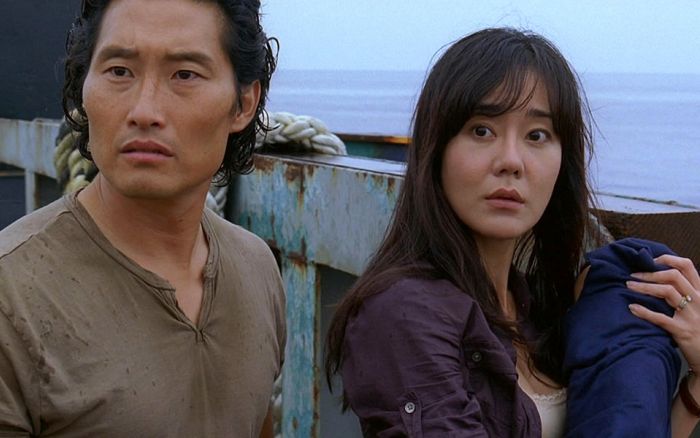
And perhaps most frustrating is that the “flash sideways” ending could’ve been much more solid and affecting had it been grounded a little bit more in the pre-existing and defined mythology instead of the ambiguous, universalist spiritual mumbo-jumbo that was foisted on us. Instead, the ending is divorced from the context that the show had been constructing since the pilot episode, thus creating a thematic and narrative dissonance within the series itself.
And remember, you can go for broke and wrap things up in a manner that is completely outlandish and unrealistic — e.g., it was all the dog’s dream — so long as it rings true and is coherent and consistent with the pre-existing mythology. A fictional world works so long as you follow its rules, which is something that Lost’s writers were clearly not interested in doing.
Other random finale-related thoughts
1) A cheap reconciliation
Put simply, the finale’s “reunion” sequence, wherein all of the “flash sideways” characters come together in a church sanctuary to exchange hugs and smiles before moving on to the hereafter, felt like a cheap and false attempt at sentimentality considering the complexity of these characters’ relationships. These are characters who have loved and hated eachother; who have stood together and stabbed one another in the back; who have saved each others skins as many times as they’ve betrayed one another.
I understand the producers’ desire to reconcile their characters, but at the same time, reconciliation that doesn’t account for the past but simply glosses over it with hugs, smiles, and beatific looks, is a cheap one. Or, as a poster on Arts & Faith put it:
I think part of the problem is that the finale embodies the wish-fulfillment of viewers, rather than the fulfillment of the wishes, desires, and heartfelt needs of the actual characters.
Any explanation of this world that these characters collectively created as a therapeutic form of closure needs to account for the fact that what we see in the end is the writer’s prediction of what would be the most satisfying audience experience, rather than the most satisfying narrative experience.
Would that we had seen a few characters who decided not to embrace eachother, but rather trade a grave, knowing glance that acknowledged the weight of their past guilt without condemnation, but also without a cloying sentimentality that rings false.
Not surprisingly, I found Ben’s exchanges with Locke and Hurley to be the most satisfying parts of the reunion, simply because they did precisely that: they acknowledged the weight of the past while also containing grace and forgiveness. As such, they were an incredibly fitting end for Ben, one of the series’ most intriguing and complicated characters.
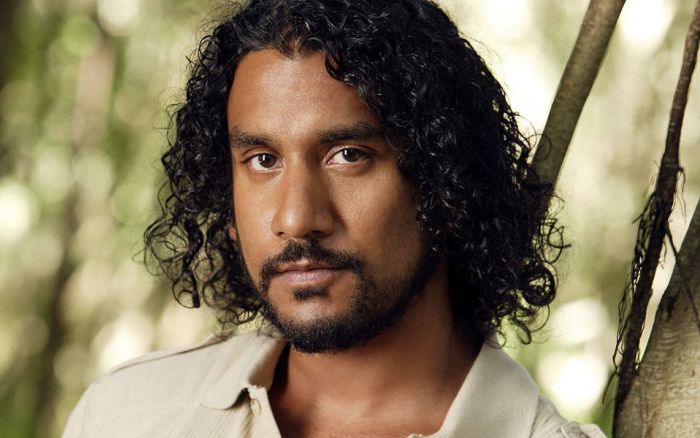
2) Sayid and Shannon? Really?
One of the key aspects of the “flash sideways” world was that all of the characters had forgotten their lives on the Island, and that they needed to be “reawakened” to that reality before they could progress. With a few exceptions, the characters were reawakened by love, and not necessarily romantic love.
For example, Kate was reawakened while helping Claire give birth to her son Aaron (again). Jin and Sun and reawakened when they saw their unborn daughter on the ultrasound. Jack was reawakened by touching his father’s coffin.
Some of these scenes — e.g., Kate’s, Jin and Sun’s — were incredibly powerful and emotionally affecting. But others — e.g., Sayid and Shannon — were simply lacking and again, felt like a shameless attempt to bring characters together for a tearjerker reunion rather than a desire to remain true to the characters and the series’ history.
3) Whither Charlie Hume?
I was surprised and dismayed at some of the choices of who was and wasn’t in the reunion. For example, where was Walt, Michael, Miles, or Lapidus? And we’re really supposed to buy that Boone and Shannon get to be there and not Mr. Eko or Richard? (Though, to be fair, Eko’s absence had more to do with Adewale Akinnuoye-Agbaje’s wanting five times the amount that the producers offered him to be in the finale than anything else.)
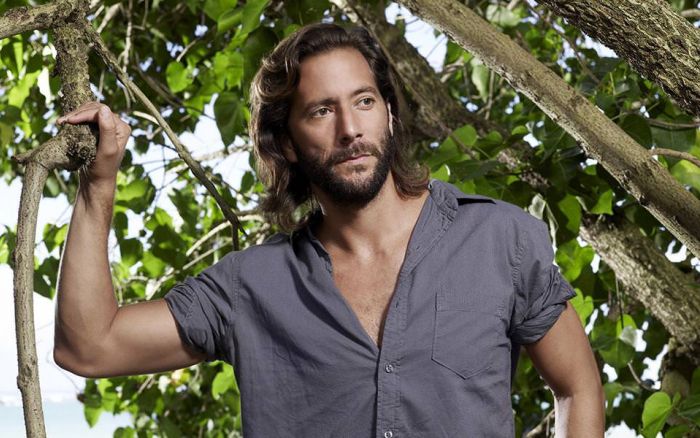
We see Aaron — Claire’s son — in the reunion. But where’s Charlie, Desmond and Penny’s son? Presumably, he’s not there because he was never on the Island. But are we really to believe that Desmond and Penny would move on to the hereafter without their son, that their time with the other characters was more important than time with their child? Again, here we see the writers more interested in the audience’s needs and desires than those of the characters.
4) About the aforementioned “ambiguous, universalist spiritual mumbo-jumbo”…
The various reactions to the finale’s religious aspects and overtones were interesting to read, specifically those writing about, and even criticizing, its “Christian-ness”. Which is something I find a little preposterous.
Sure, Lost drew on a lot of Christian imagery, some of it better than the rest, but so what? The series was always a spiritual smorgasbord that drew from such sources as Christianity, Egyptian mythology, Buddhism, and Taoism with equal aplomb. And did noone see the “window o’ many religions” in the scene where Jack (and the audience) finally learns the truth of the “flash sideways” from his father?
Truth be told, the picking and choosing of religious imagery never bothered me in Lost, but it really bothered me in the finale. The window — and by extension, the finale — felt like a lame attempt to be politically correct, an attempt to depict a version of the hereafter that wouldn’t offend anyone (except for, I suppose, atheists). But in doing so, the writers end up with a version of the hereafter that is clichéd and banal.
5) Believe it or not, there were parts of the finale that I did like.
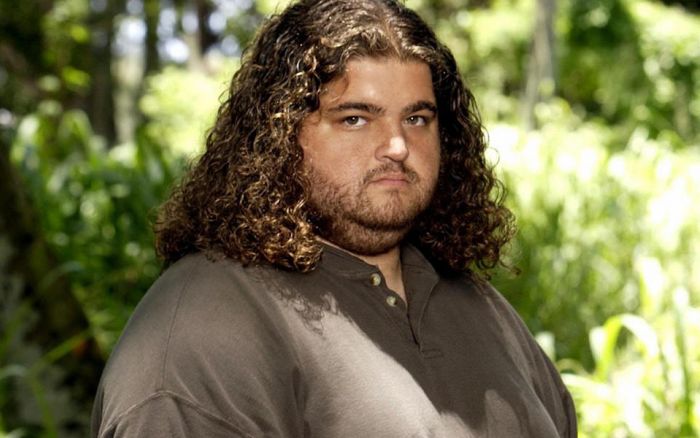
I’ve always thought that Lost has been blessed with strong, memorable performances throughout its run from everyone in its ensemble cast. And the finale kept the streak going. Everyone was firing on all cylinders, but I was particularly impressed by Evangeline Lilly (Kate), Jorge Garcia (Hurley), and Matthew Fox (Jack).
I loved the very final scenes of the finale with Jack which brought the series full circle. Sure, it was a little cheesy and “on the nose” to watch a bloodied Jack walk through the forest and just happen to make it to the exact same spot where he woke up on the Island, but I liked the symmetry. And the series’ very last shots — Jack lying on the ground with Vincent the dog beside him, his smile at seeing the airplane containing Kate, Sawyer, and the other survivors fly overhead, and his eyes closing — were a perfect way to end the series. I just wish that the preceding events had lived up to the elegance and grace of those last shots.
Lost always did remarkable things with sound and music, from the opening ominous tones that opened each episode to the stirring character scores. And composer Michael Giacchino went above and beyond the call of duty in the finale. Indeed, if anything stuck with me from the finale, it was Giacchino’s score, the final strains of which haunted me long after the credits stopped rolling.
6) So now what?
Supposedly, the DVD release of season six will contain an “extended cut” of the finale with additional footage, but at this point, I’m leery about diving back in. There’s a part of me that wants to watch the first season again, simply because it was such an awesome season of television. But I fear doing so will ultimately be an exercise in frustration because I’ll see all of the promise contained within those 25 episodes and know that it was ultimately squandered.
If I were in charge of the Island…
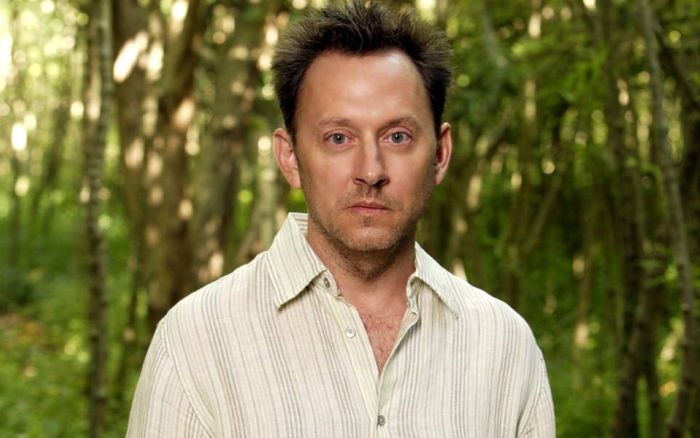
By now you’re probably thinking, “OK smart guy, enough with the nitpicking. What would you have done differently?” I’m glad you asked. Without going into great detail — this article is already too long as it is — I would’ve treated the Island as the last outpost of some ancient civilization that vanished thousands and thousands of years ago. And for the sake of argument, we’ll call it “Lostland”.
Lostland has been brought to the brink of ruin by a cataclysm resulting from its citizens’ own hubris and division. A few enlightened members of the society decide on a last ditch effort to preserve their civilization: they’ll hide a cache of their greatest knowledge, technology, and achievements on the Island for posterity’s sake and imbue the Island with certain properties — e.g., the electromagnetism, the smoke monster, its ability to “hide” — necessary for its survival. Lostland is ultimately destroyed and its survivors are scattered across the globe, but the Island survives. Over time, the Lostlanders intermingle with other societies and nations and their knowledge of their past, including the Island, fades into myth and legend.
One of the Island’s myriad properties is the ability to call back to itself those who are descendants of Lostland, even if they don’t know it. This ability manifests itself in many ways and one of them is the Dharma Initiative. Those behind the Initiative are descendants, and they begin recruiting other descendants to work on solving the Valenzetti Equation, an equation that purports to predict humanity’s demise but might also predict how the cataclysm that destroyed Lostland could occur again. The Dharma Initiative is eventually drawn to the Island via their research into the Equation, where they begin exploring and discovering its many wonderful properties.
They also clash with other Lostland descendants who have come to the Island and learned some of its secrets — we’ll call them the Others — and we see that nothing has really changed in the intervening millennia. Another cataclysm occurs — the so-called “Purge” of the Dharma Initiative. And schisms develop within the Others that echo the various factions that brought Lostland to ruin in the first place (e.g., the enmity between Benjamin Linus and Charles Widmore). Meanwhile, the Island keeps working behind the scenes, slowly drawing other surviving Lostlanders to itself in the hopes of rebuilding and redeeming this once-great civilization.
Which brings us to Jack, Kate, Sawyer, Hurley, and the rest of our favorite characters. They’re all descendants of Lostland, completely unaware of their lineage and heritage. Some, however, are a little less unaware (e.g., Locke, Walt) and are drawn to the Island in special and unique ways. Eventually, the series comes to a head when the Island’s true nature as an outpost is revealed, and its fabulous riches of knowledge and technology are revealed. Knowledge and technology that could bring about a golden age for all of Earth, thus preventing the cataclysm predicted by the Valenzetti Equation, or it could be used to set up a few as gods and turn everyone else into slaves. It’s up to our beloved characters to make the decision, and they must make it together because they’re all part of something bigger than themselves.
Obviously, I’ve glossed over a lot, but such a plot would be pretty consistent with everything that we’ve seen of the Island. Furthermore, it would easily lend itself to the series’ pet themes of faith versus science and free will versus determinism. It would explain why these characters’ lives were so intertwined, even if they didn’t know it at the time (i.e., they all had a common heritage and were being drawn together towards a common destiny).
It would explain the Dharma Initiative, the Others, and any other factions on the Island. It would explain the ancient buildings, hieroglyphics, donkey wheels, statues, and other ancient artifacts littering the Island. It would explain the Island’s mysterious and fabulous properties, as well as its more chaotic side, such as the smoke monster run amok and the Island skipping around in time (because even super-advanced technology is going to break down after several thousand years).
In short, it would be entirely consistent with the mythology of the Island, and create a coherent world in which you can still have all of the personal drama, character arcs, and myriad revelations and twists for which Lost became so famous. In short, you lose little and you gain much — including a finale that actually has the guts to answer some questions and solve some mysteries while still allowing for the characters to receive a properly emotional and heartwarming send-off after having made hard decisions and gut-wrenching sacrifices.
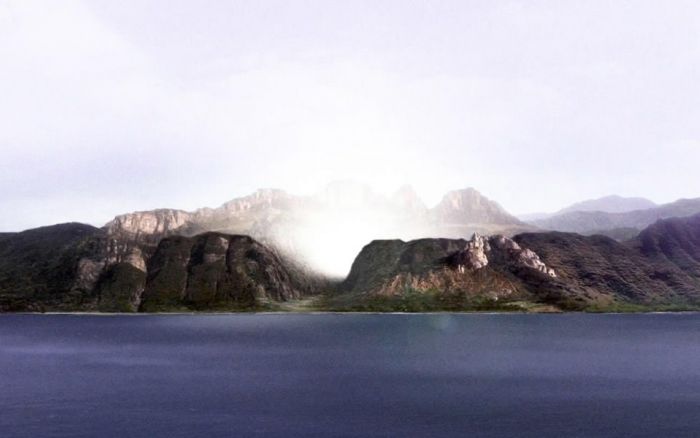
What more could you want?